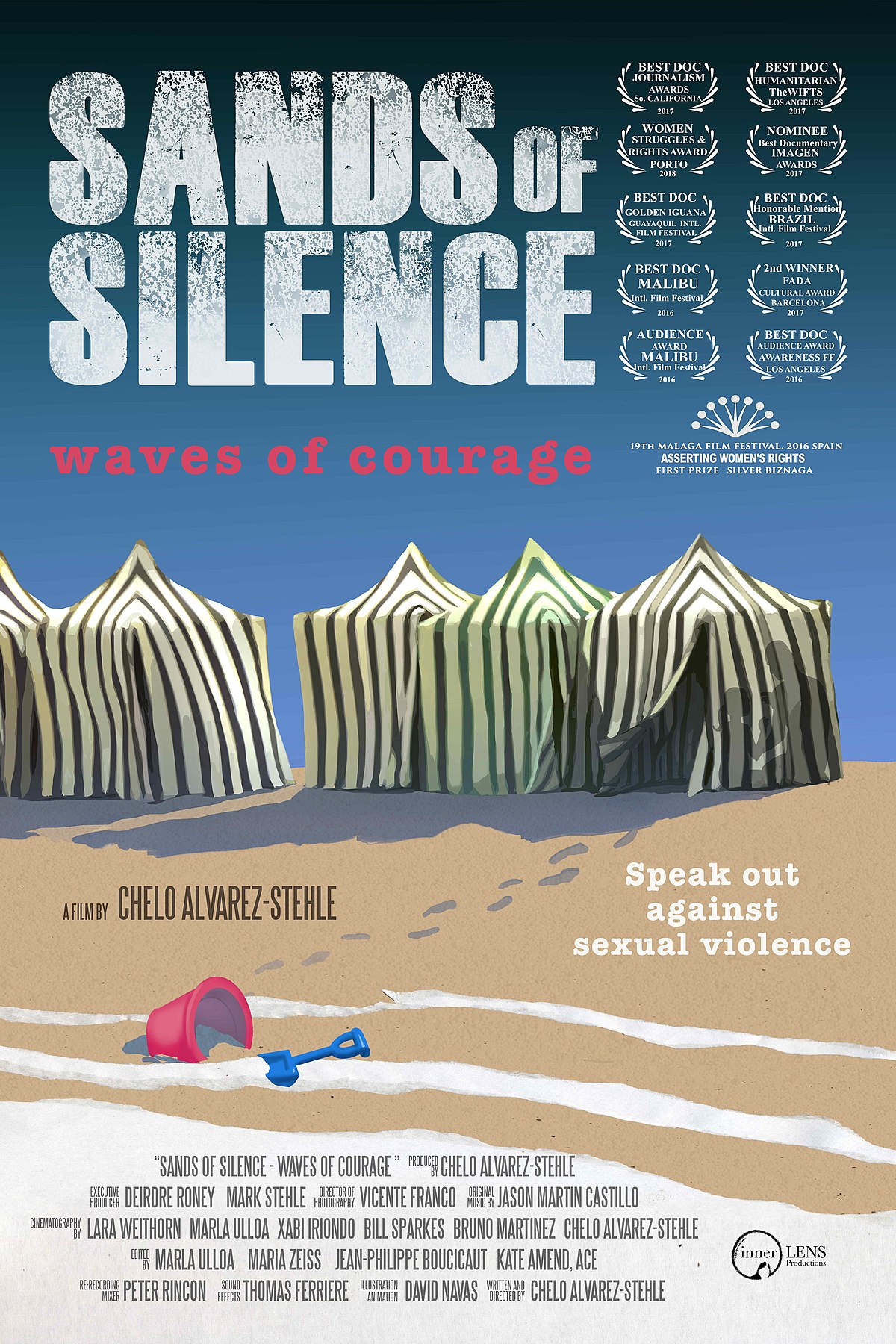As the second fastest growing, illegal industry in the world, garnering a profit five times that of Starbucks, Nike, and Google combined, the human and sex trafficking industry has become a worldwide epidemic. Sociology students, led by Godwin Social Studies teacher Anna Bryant, have dug deep into a unit on human trafficking and sexual exploitation in hopes of preventing and combating this local and global issue.
“Preparing my students for the world beyond high school is a critical mission of my teaching. As young people entering the world there needs to be an awareness of what is going on,” said Bryant.
For seven years, Bryant has drawn inspiration from the Prevention Project and the Richmond Justice Initiative to create a unit educating students and equipping them with the knowledge and skills to identify and deal with these issues in their communities.
“If one student is more aware, protects himself or herself, notifies the authorities about suspicious activity, or volunteers for such outreach programs – I have accomplished my goal,” said Bryant.
During their time studying human trafficking, students explored numerous documentaries depicting the strenuous labor, inhumane conditions, and distressing experiences of trafficking victims. One documentary viewed by students titled Sands of Silence: Waves of Courage detailed the experiences of sexual exploitation and abuse of the film’s creator and director, her sister Marián, and a woman named Virginia.
After receiving positive student responses about the film, Bryant contacted its creator. A few weeks later on Jan. 26, Sands of Silence director Chelo Alvarez-Stehle visited with sociology students via Microsoft Teams.
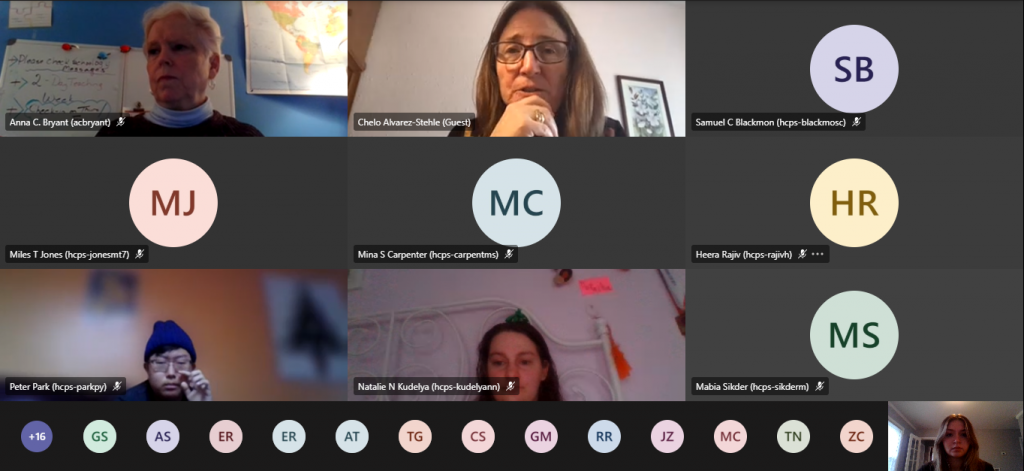
As a world reporter and filmmaker, Alvarez-Stehle has worked as a foreign correspondent for Spain’s El Mundo in Tokyo and Los Angeles and produced and directed numerous short film-documentaries including Tin Girls, a film on child trafficking in the Himalayas, and Sold in America: A Modern-Day Tale of Sex Slavery, which focuses on sex trafficking in the United States. Additionally, she co-founded the MASALA Project, an animal farm and spice factory producing revenue to support Nepali sex trafficking survivors, and developed the social impact videogame SOS_Slaves: Changing the Trafficking Game.
Alvarez-Stehle’s work over the last two decades to expose and combat sex trafficking and sexual exploitation led her into the eight-year journey of creating her award-winning feature film Sands of Silence, which was the focus of her discussion held with sociology students.
Kicking off the class Q&A, Alvarez-Stehle discussed her thoughts about teens exploring her film and her experience showing the first cut of Sands of Silence to a local school in California.
“We hadn’t released the film. We showed it to a documentary class, it was young people like you, and suddenly it was amazing the way they reacted. I said ‘wow, this is incredible’ because if it can touch young people, that’s perfect because you have the responsibility of fighting this issue,” said Alvarez-Stehle.
Detailing her background and education, Alvarez-Stehle discussed her unique career journey and upbringing.
“I was born in [Logroño,] Spain, and I went to school in Spain. After four years [of medical school], I dropped out because I was in a search as a human being. I knew I was on a quest, and I wanted to do something beautiful with my life, to find my own path,” said Alvarez-Stehle.
After working and studying for a long time, Alvarez-Stehle had the chance to move to Japan on a grant provided by the European Union. There, she began her work in journalism.
“…My universe started expanding. I started discovering that there were lots of issues resonating in my heart and that I wanted to explore. I became a journalist, actually, in Japan, and I had never gone to journalism school. I never went to film school,” said Alvarez-Stehle.
From her first journalistic reportings on World War II Korean sex slaves seeking reparations from Japan to her work uncovering child trafficking in Nepal to her own experiences with sexual abuse, Alvarez-Stehle realized the universality of sexual violence and human exploitation and their reaching affects across gender.
“We have to be careful with this [issue] because it’s a fight that we all need to fight together. Both to create awareness, we all need to fight together…acknowledge boys in your class and the young men that you live with too, include them, because many of them are victims,” said Alvarez-Stehle.
Following her eye-opening experiences in Japan and abroad, Alvarez-Stehle moved to California, living and working there for 24 years with her husband, Mark, and her daughter, Sangita, whom she adopted during her work in Nepal. It was in California that Alvarez-Stehle began working on Sands of Silence.
“Because I was living in Los Angeles…I was writing these articles for magazines and a friend of mine told me, ‘Why don’t you do documentaries because you can reach a wider audience?’ and I was like, ‘Well, I never went to film school,’ but I have never gone to journalism school, so I said, ‘Well, maybe I can.’ So then I started,” said Alvarez-Stehle.
Soon thereafter, Alvarez-Stehle had the opportunity of helping out a local women’s shelter by producing a short film to spread awareness and promote fundraising efforts.
“California’s state budget was being cut, and they were about to cut the funding for this women’s shelter, and they had 150 women and children that were going to be sent out to the street. So the director calls me…and so I went there and I started interviewing several people that were in the shelter that had been victims of different types of trafficking,” said Alvarez-Stehle.
While working on the short film, Alvarez-Stehle learned about a woman who left the shelter and began working for the county as a mental health counselor, helping to educate the Latino community about mental health services. Alvarez-Stehle soon found that the woman, Virginia, had herself been a victim of sex trafficking, kidnapped with her baby and forced into prostitution for three months in Mexico before escaping to the United States.
“I interviewed her, and it was like ‘oh my goodness, she has an amazing story,’” said Alvarez-Stehle.
Virginia’s story was pivotal in forming the perspective found in the Sands of Silence film. Her story, in combination with Alvarez-Stehle’s and her sister Marián’s, provided the global connection between trafficking and sexual violence across all cultures.
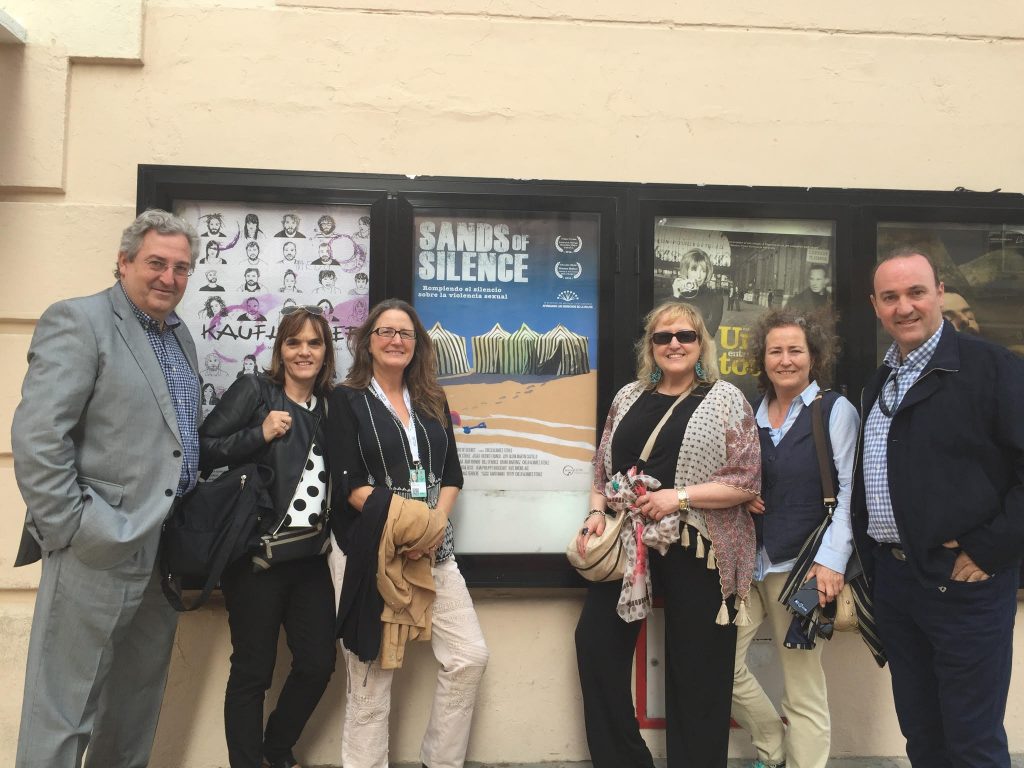
“The reason why I wanted to intertwine my story with Virginia’s story is to show that sexual violence goes beyond cultures and beyond classes…backgrounds, etc., so I felt my film could resonate in the same way in a family that is watching this documentary on a TV in Spain as the one that is watching it in the US,” said Alvarez-Stehle.
Weaving together the stories of her sister and Virginia, Alvarez-Stehle began making her own connections. While producing her film, long-repressed memories of her own abuse began to surface, transporting her back to the guilty, isolating thoughts she experienced as a young victim.
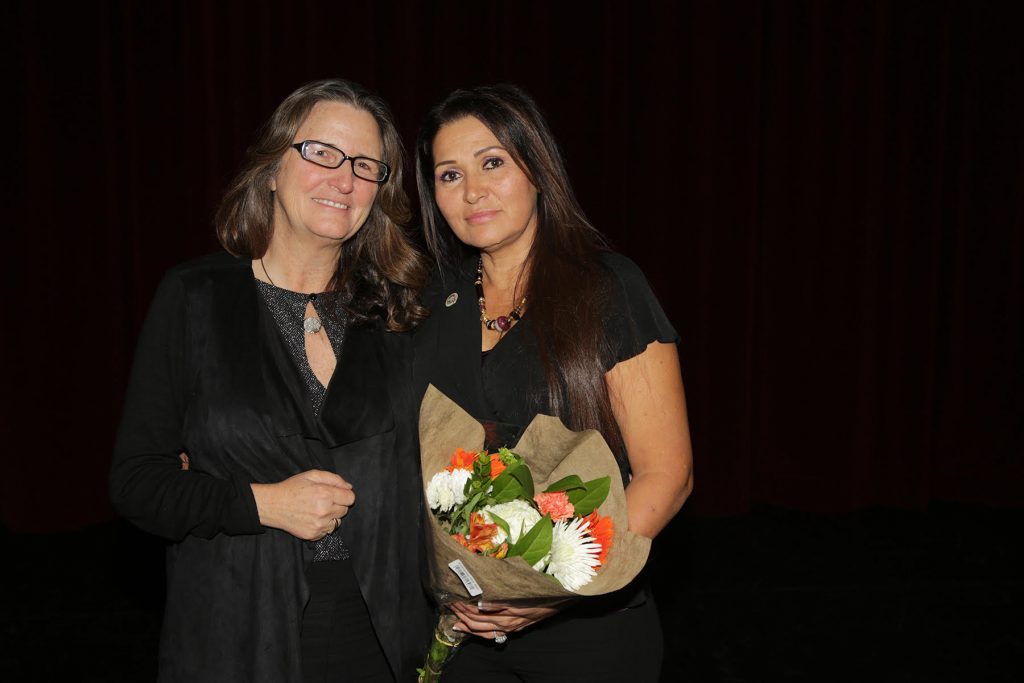
“Nobody could think that of me. I was a very good student. I had very good grades. I was a leader, involved in all the things…I was the eldest of seven siblings, a mandona, always ordering everybody around, so nobody would have expected that from me–and I wasn’t expecting that for myself…but the power of abuse is such that it kind of captures you, and I was trapped,” said Alvarez-Stehle.
Grappling with the realization of her experience, working on the film became a difficult process for Alvarez-Stehle, who went to therapy in order to finish the film.
“It was very tough to do…so tough that I had to start therapy in the last two to three years before finishing the film,” said Alvarez-Stehle.
Though, through her struggles creating Sands of Silence, Alvarez-Stehle was able to come out of it stronger than before.
“It’s been a huge, beautiful healing process doing this documentary. Doing it was hard, but then once it was released…the path of taking it to the world…it was amazing. It’s really been so nurturing for me,” said Alvarez-Stehle.
Since the successful release of Sands of Silence, Alvarez-Stehle has traveled around the world sharing her story. Currently, she is living in Barcelona with her husband, where she is working to produce two spin-off documentaries on sexual aggressors which were inspired by her experience showing Sands of Silence to convicted sex offenders in Spain.
“Now, I’m in Barcelona, and I’m developing two documentaries,” said Alvarez-Stehle.
After the interview with Alvarez-Stehle, students reflected on their time with the speaker and studying the human trafficking unit.
“I was very unaware and this topic made me learn a lot. I was actually very unknowledgeable on this topic, and it really benefited me because I didn’t realize how big of an issue this was and how much money people made off of it, and now I know the signs of trafficking and how to be aware of my surroundings,” said Godwin senior and sociology student Zenny Cheema.
Closing out students’ human trafficking unit, the discussion with Alvarez-Stehle encouraged them moving forward.
“Seeing the way [Alvarez-Stehle] talked about her experience really made me feel so confident and brave about this in my life and open to sharing if something like this ever were to happen to me personally,” said Godwin senior and sociology student Natalie Kudelya.
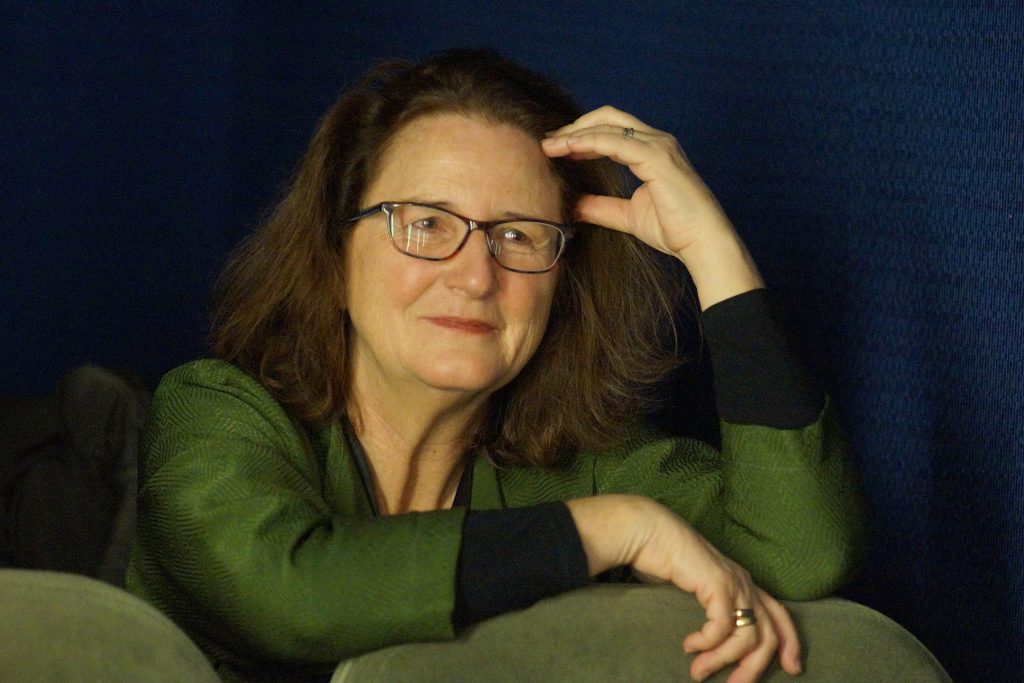
To learn more and watch the film, please visit www.sandsofsilence.org

